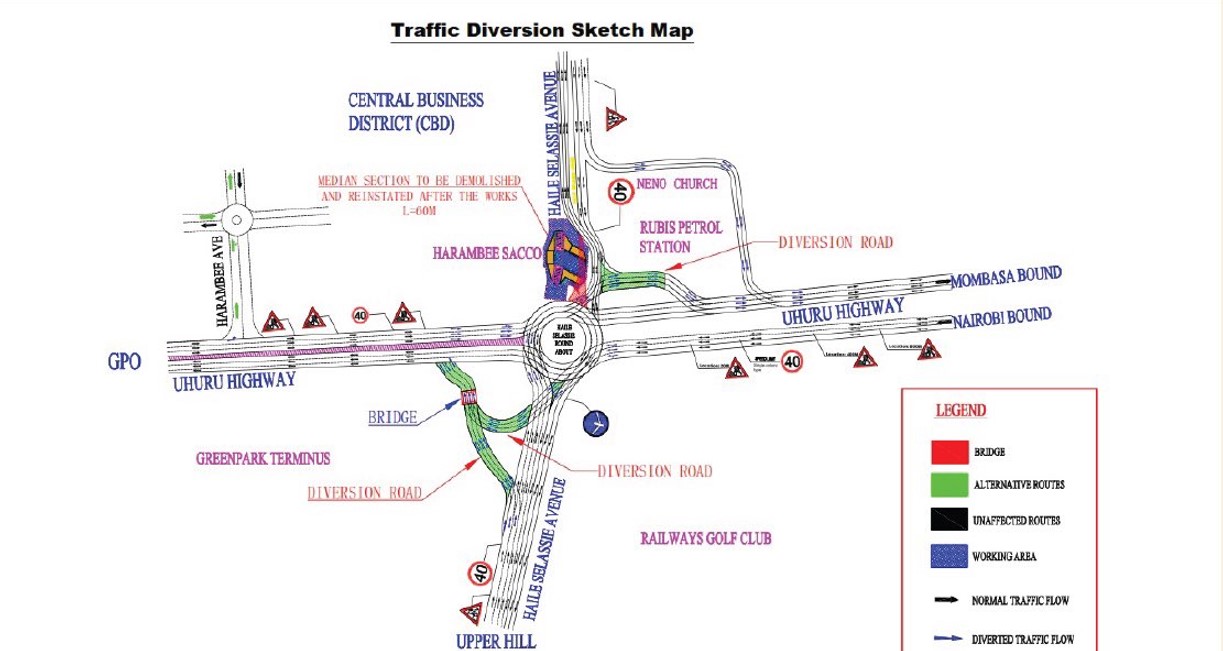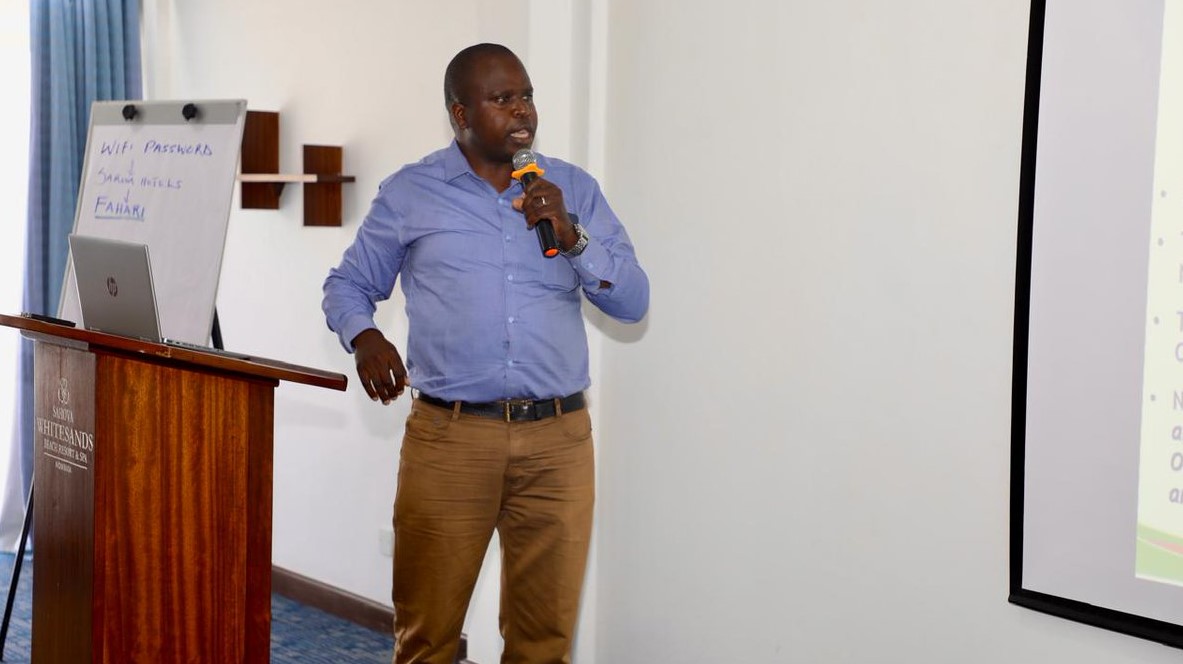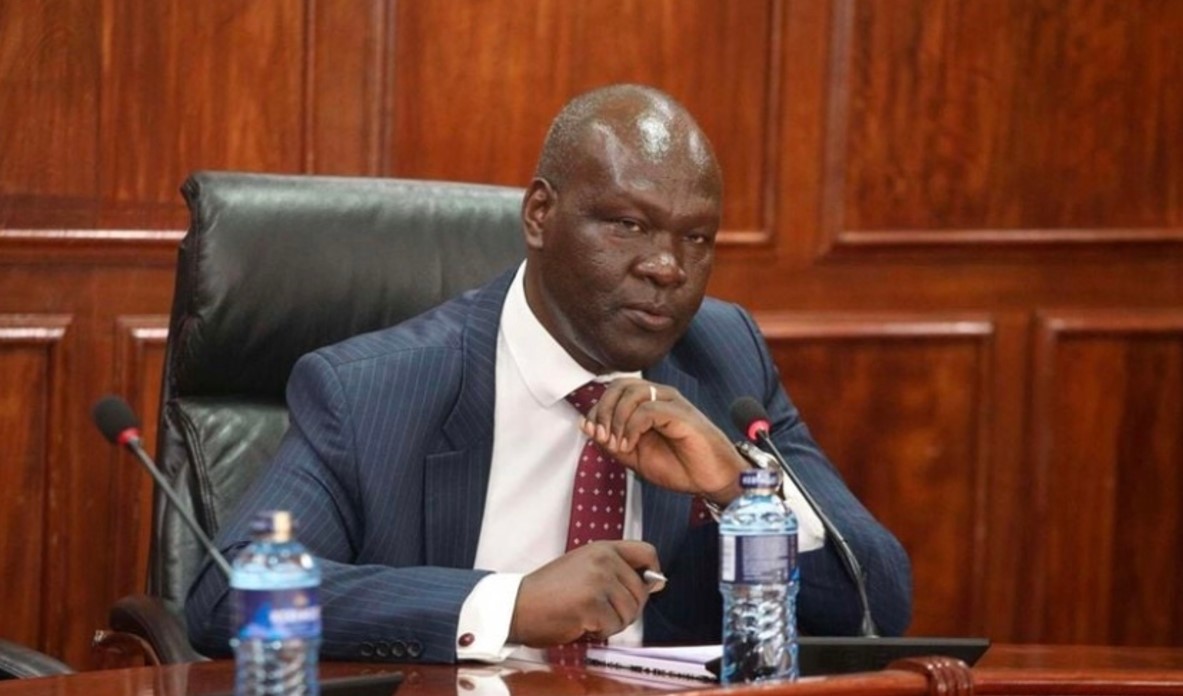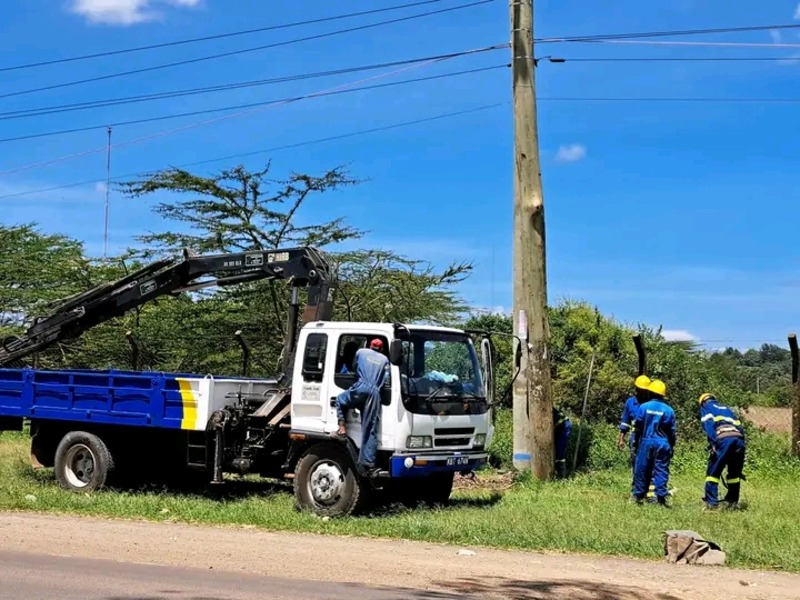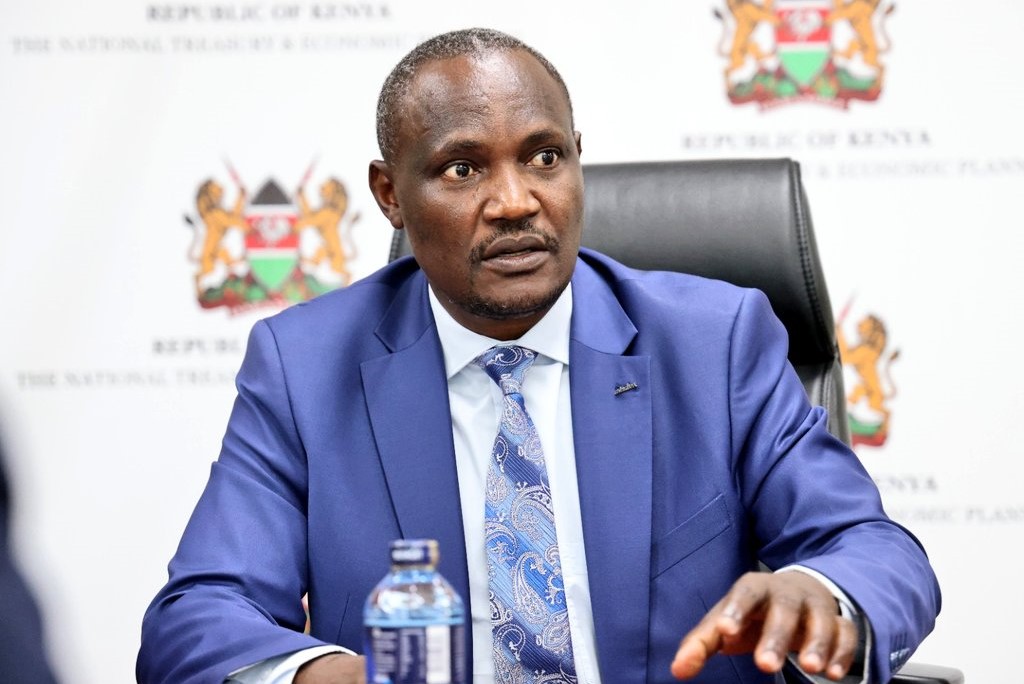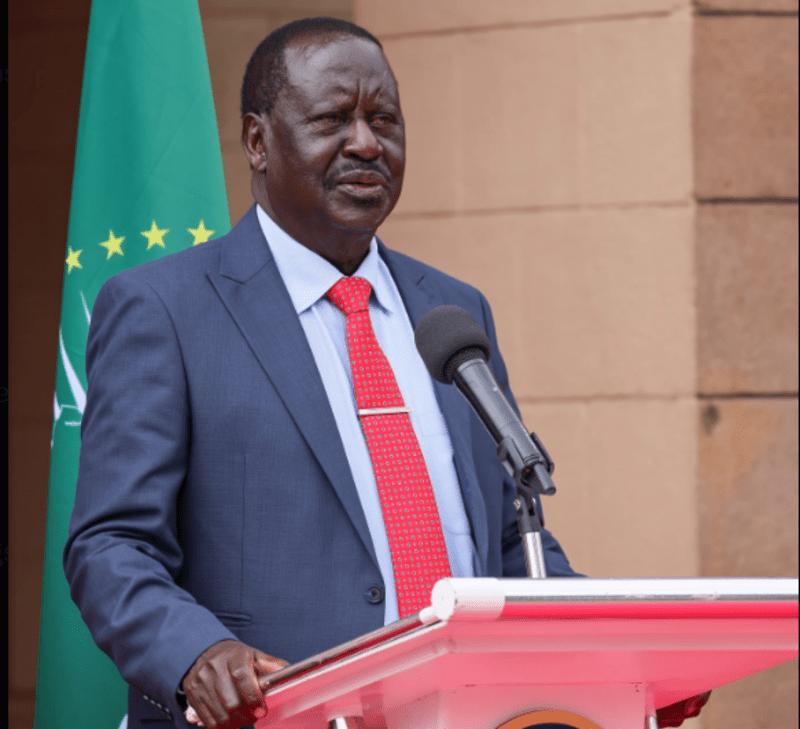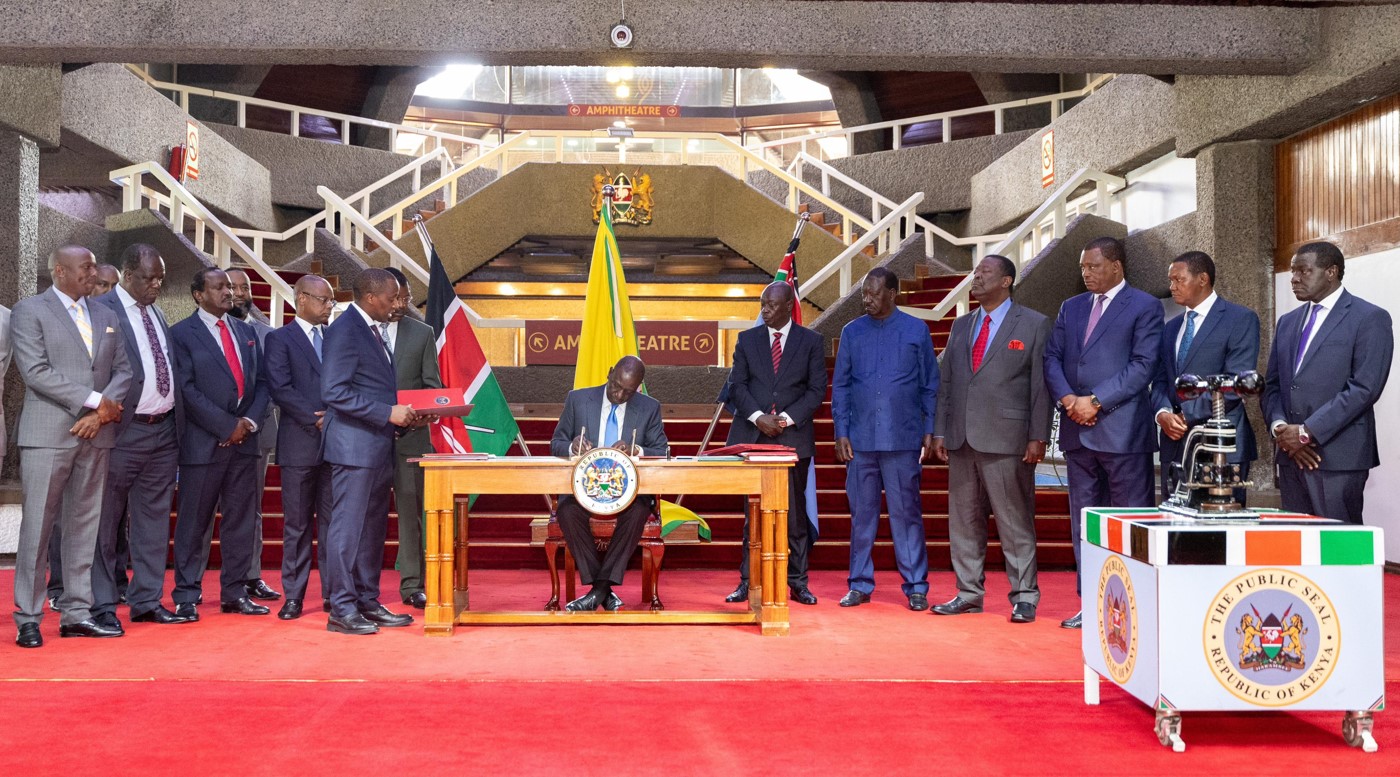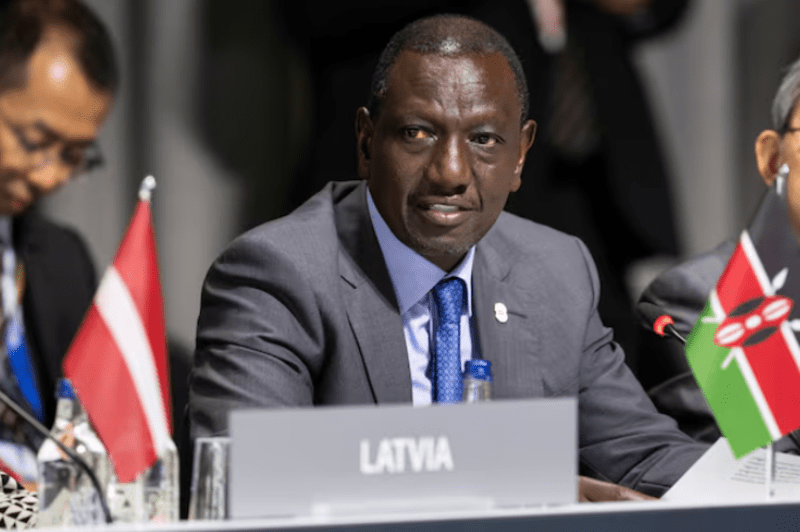Nine resolutions from the National Wage Bill Conference
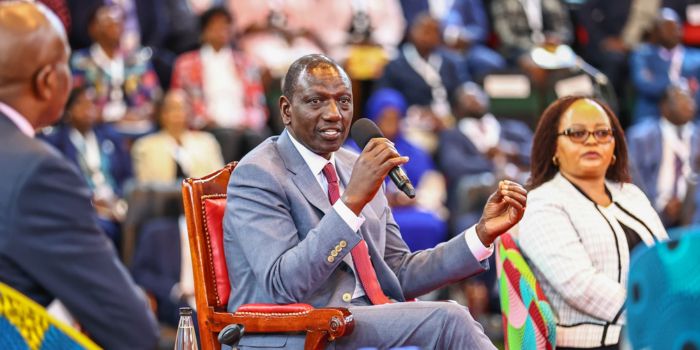
By Amina Bonaya |
The goal of President Ruto's Kenya Kwanza government is to achieve a wage bill-to-revenue ratio of 35 per cent by June 30, 2028.
President William Ruto on Wednesday concluded the 3rd National Wage Bill Conference 2024, which agreed on nine resolutions for reducing the country's wage bill.
The goal of Ruto's Kenya Kwanza government is to achieve a wage bill-to-revenue ratio of 35 per cent by June 30, 2028, as part of efforts for Kenya to sustain its expenses and limit borrowing from external sources.
Keep reading
- Ruto cancels JKIA, KETRACO deals with Adani Group after bribery scandal
- Gachagua: How I was barred from attending Mashujaa Day celebrations in Kwale
- My role was to help fight Uhuru, bring Ruto to power - Gachagua laments
- Ruto calls for thorough investigation into Hillside Endarasha Academy fire tragedy
At the summit, he warned civil servants with fake academic certificates, asking them to surrender and tasking the Ethics and Anti-Corruption Commission (EACC) and the Directorate of Criminal Investigations (DCI) with recovering the funds.
The nine resolutions centre on efforts to eliminate the duplication of roles, strategic fiscal planning, institutional optimisation, performance management reforms, payroll modernisation, and oversight and implementation.
The first one is for all government ministries, departments, agencies, and state corporations to refine their strategies and action plans for achieving this goal, and submit their plans to the respective cabinet secretaries by June 30, 2024, for approval.
The National Treasury and the Controller of Budget were asked to monitor and ensure adherence to this directive.
The lead actors for this resolution are the Salaries and Remuneration Commission (SRC) and the State Corporations Advisory Committee (SCAC).
The second resolution is for all county executive committee members for public service to follow suit and refine strategies.
Their strategies and action plans will be submitted to the County Executive Committee (CEC) by June 30, 2024, for approval.
The county governments and the Controller of Budget will monitor this, with the lead actors being the SRC and the Intergovernmental Relations Technical Committee (IGRTC).
Our enhanced revenue collection via digitisation, the fight against corruption and the deliberate creation of alternative pathways to employment will ensure that our country attains a sustainable public service wage bill.
— William Samoei Ruto, PhD (@WilliamsRuto) April 17, 2024
Officially closed the Wage Bill Conference and presented… pic.twitter.com/PuzsYhD6aG
The other resolutions from the meeting were as follows:
3. Public service institutions to review and rationalise their staff establishments to align them with affordability, fiscal sustainability, the right composition, skills set and fit-for-purpose organisation structures that will facilitate the institutions to achieve the 35 per cent [goal] by 2028.
Lead actors: The Public Service Commission (PSC) and County Public Service Boards (CPSBs)
4. Review the Kenyan model for performance management by December 2024 to shift from measurement of activities and inputs to outputs and outcomes. Institutionalise measurement of productivity, integrate the various measurement systems and create a clear linkage to a reward and sanction system.
Lead actors: The Ministry of Public Service Performance and Delivery Management (MPSP&DM) and the Ministry of Labour and Social Protection (ML&SP).
5. All institutions of the national and county governments to adopt and build capacity on performance contracting as an accountability tool in line with Medium Term Plan IV, with effect from July 1, 2024. In this regard, public service institutions to incorporate productivity measurements, process reengineering, technology, and skills development as key drivers for implementation.
Lead actors: The MPSP&DM, the ML&SP, and CPSBs.
6. All institutions at both levels of government to migrate their payrolls to the Human Resource Information System-Kenya by June 30, 2025. Further, manual, multiple and stand-alone payroll systems to cease.
Lead actors: The Ministry of Public Service, Perfomance and Delivery (MPS&PD) and accounting officers.
7. Eliminate duplications and mitigate overlap of mandates, roles and functions across state corporations, national and county governments, constitutional commissions and independent offices.
Lead actors: The OPCS (NDIC), the IGRTC, and the SCAC.
8. Initiate a government-wide cultural transformation to embed national values and principles, and institute a mechanism for reward and consequence management in pursuit of a transformed public service culture.
Lead actors: The PSC, the Head of Public Service (HOPS) and county governments.
9. Submit the resolutions to the summit for adoption, and thereafter, constitute an inter-governmental multi-agency team to implement the resolutions.
Lead actors: The SRC, the IGRTC, and the Council of Governors (CoG).
On April 15, day one of the conference, the SRC cautioned employers against the upward revision of civil servants' monthly salaries, citing Kenya's huge wage bill.
It asked the employers not to entertain any proposals for financial reviews unless they clearly showed they could afford to sustain such adjustments.
The warning came days after Ruto raised concerns about a bloated wage bill, whose share of total revenue, he noted, had increased from 35 per cent to 47 per cent.
“We are way above [what the law recommends]. We need a conversation so that those of us who earn salaries are responsible and we can reduce our wage bill and free more resources to create jobs for our young people,” he said.
Reader comments
Follow Us and Stay Connected!
We'd love for you to join our community and stay updated with our latest stories and updates. Follow us on our social media channels and be part of the conversation!
Let's stay connected and keep the dialogue going!



